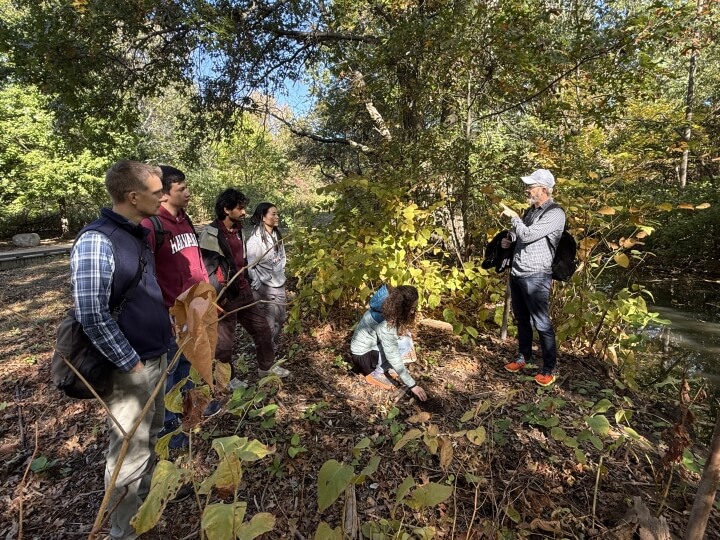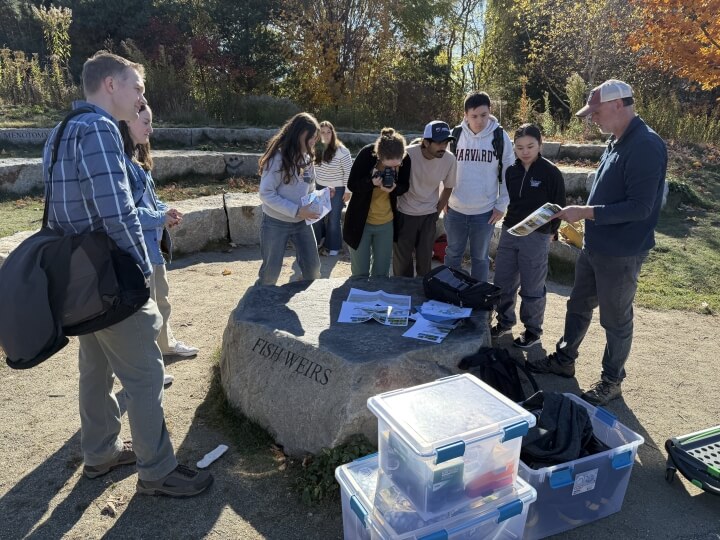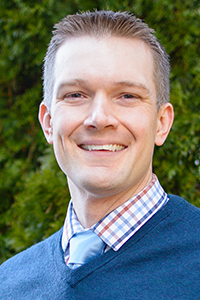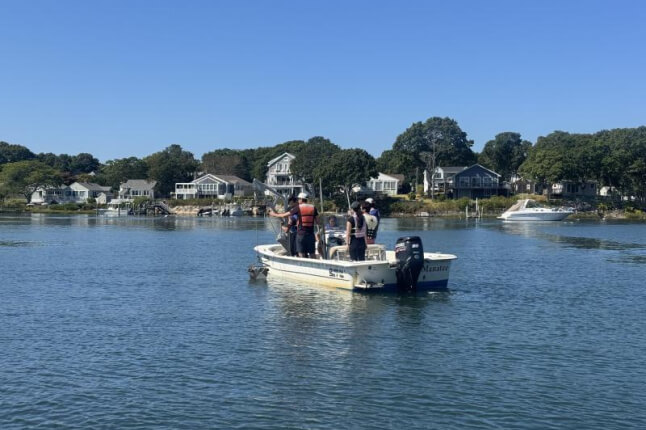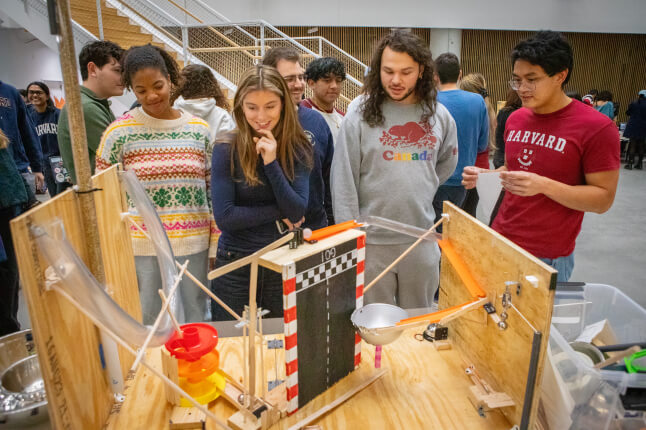News
Patrick Ulrich, Jack Bruce, Umar Azad, Zora Zheng, and Aeden Marcus from "ESE163: Pollution Control in Aquatic Ecosystems" learn about design principles for stormwater wetlabs from Steven Nutter, Deputy Director of Interdisciplinary Design at Hatch. (Nicholas LoRusso/Active Learning Lab)
Students in “ESE163: Pollution Control in Aquatic Ecosystems,” an upper-level environmental science and engineering course for undergraduates at the Harvard John A. Paulson School of Engineering and Applied Sciences (SEAS), recently performed field work at Alewife Brook Reservation, the largest construction stormwater system in the Northeast. To offer this experience, the course partnered with Green Cambridge, a local non-profit focused on sustainable urban development, climate resilience, and environmental justice. Much of their programming leverages community spaces as educational opportunities, including at Alewife Reservation. Since 2021, Green Cambridge has worked to restore the boundary between the Little River and the Alewife Stormwater Wetland.
On the first of two trips to Alewife, Green Cambridge Director Steven Nutter led students around the reservation and described the environmental and community history of the area. When they returned the following week, Deputy Director Sarah Adkins and Terracorps Community Engagement Coordinator Maya Bickel from Green Cambridge steered students in field work and sample collection. Duke Bitsko, Deputy Director of Interdisciplinary Design at Hatch, also spoke to the students about the planning and engineering principals that went into designing and constructing the wetland.
“I was delighted to go out to the Alewife Brook Reservation with an environmental engineer and folks from Green Cambridge and to collect and analyze water quality data from the site,” said Aeden Marcus, S.B. ‘25. “My inspiration to study environmental science and engineering has always been the social contexts and place-specific human impacts of environmental issues, so it was especially rewarding to learn about the larger history of the area and the way the surrounding community now uses of the human-designed stormwater treatment area as an integral space for reconnection with nature.”
Patrick Ulrich and students learn about design principles for stormwater wetlabs from Duke Bitsko, a guest instructor from Green Cambridge (Nicholas LoRusso/Active Learning Labs)
Students evaluated the water quality at different stages of the stormwater wetland, from the inlet at the forebay to its outlet into Little River. Samples were collected and evaluated back in the Active Learning Labs in the Science and Engineering Complex.
“I haven’t taken many classes that allow hands-on sampling and analysis of water, so this experience was incredibly engaging and fun for me,” said Zora Zheng, S.B. ‘25. “The Alewife Brook Reservation is also a stunning place to spend a Friday afternoon. Moreover, its rich history sparked my curiosity, making me much more aware of the unique backgrounds of other reservations and parks and how they came to be."
The course was taught by Patrick Ulrich, Senior Director for Undergraduate Education, and the labs and field work are also supported by Nicholas LoRusso, Senior Environmental Engineer in the Active Learning Labs.
“This was a really exciting opportunity for the class to get their hands dirty – figuratively – as well as learn about the real-world context of a local engineering solution,” Ulrich said. “We initially targeted the Alewife stormwater wetland as one of our field excursions because it's an exceptional local example of a large-scale natural treatment system for non-point pollution. It was really a blessing to be connected to Green Cambridge. Through the partnership we forged for this field trip, the educational experience became so much richer as they helped to fill in the historical and societal context of the Alewife area.”
Topics: Academics, Active Learning Labs, Environment, Environmental Science & Engineering
Cutting-edge science delivered direct to your inbox.
Join the Harvard SEAS mailing list.
Scientist Profiles
Patrick D Ulrich
Senior Director for Undergraduate Education
